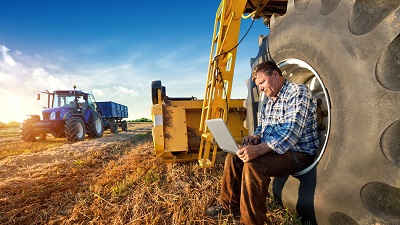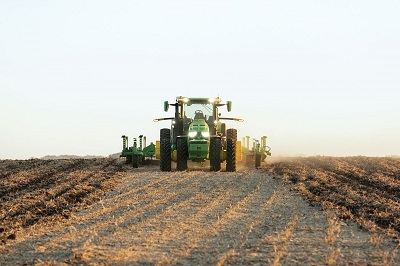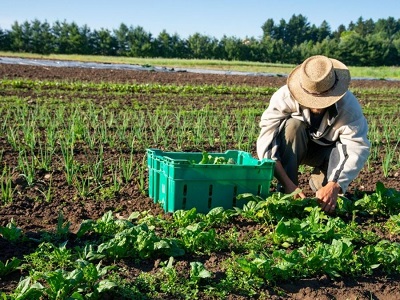Farming South Africa Sustainable PracticesFarming in South Africa: Embracing Sustainable Practices
Welcome to our guide on sustainable farming practices in South Africa, where we explore innovative approaches to agriculture that prioritize environmental stewardship, social equity, and economic viability. In a country with diverse landscapes, climates, and socio-economic dynamics, sustainability is not just a goal but a necessity for ensuring the long-term health and resilience of our agricultural systems.
From the lush vineyards of the Western Cape to the arid plains of the Karoo, South African farmers are pioneering sustainable techniques that minimize environmental impact, conserve natural resources, and promote community well-being. Join us as we delve into the following sustainable farming practices shaping agriculture in our country:
- Water-wise Agriculture: In a water-stressed environment, efficient water management is paramount. Learn how farmers are implementing drip irrigation, rainwater harvesting, and soil moisture monitoring to optimize water use and mitigate the impacts of drought.
- Soil Health and Conservation: Healthy soils are the foundation of sustainable agriculture. Explore regenerative farming practices such as cover cropping, no-till farming, and agroforestry that enhance soil fertility, carbon sequestration, and resilience to erosion.
- Agroecology and Biodiversity: Discover how agroecological principles are promoting biodiversity conservation, natural pest control, and pollinator habitat restoration on South African farms. From integrated pest management to organic farming, explore techniques that reduce reliance on synthetic inputs and enhance ecosystem services.
- Climate-smart Farming: Climate change poses significant challenges to agriculture, but also opportunities for innovation. Learn about climate-smart practices such as drought-resistant crop varieties, climate-resilient livestock breeds, and carbon farming initiatives that contribute to climate adaptation and mitigation efforts.
- Community Engagement and Empowerment: Sustainable agriculture goes beyond the farm gate, encompassing broader social and economic dimensions. Explore initiatives that promote rural development, empower smallholder farmers, and strengthen local food systems through cooperative networks and farmer-led initiatives.
- Technology and Innovation: Embrace the role of technology in advancing sustainability in agriculture. From precision farming and data analytics to blockchain traceability and renewable energy integration, discover how cutting-edge innovations are driving efficiency, transparency, and resilience across the agricultural value chain.
- Policy and Partnerships: Finally, explore the role of government policies, industry collaborations, and multi-stakeholder partnerships in advancing sustainable agriculture in South Africa. From incentive schemes and certification programs to collaborative research and extension services, learn how collective action is driving positive change in the agricultural sector.
Join us on a journey through the rich tapestry of sustainable farming practices in South Africa, where tradition meets innovation, and resilience grows from the soil up. Together, let’s cultivate a future where agriculture thrives in harmony with nature, communities flourish, and prosperity is shared by all

Water-wise Agriculture
Water-Wise Agriculture: Nurturing Crops, Sustaining Communities
Water-wise agriculture in South Africa, where the careful stewardship of water resources is essential for ensuring food security, economic prosperity, and environmental sustainability. In a country characterized by water scarcity and climatic variability, adopting water-wise practices is not just a choice but a necessity for farmers striving to thrive in challenging conditions.
- Drip Irrigation: Discover how drip irrigation systems are revolutionizing water management in agriculture. By delivering water directly to the root zone of plants in precise amounts, drip irrigation reduces water wastage, minimizes evaporation, and promotes efficient nutrient uptake, all while maximizing crop yields.
- Rainwater Harvesting: Explore the art of capturing and storing rainwater for agricultural use. From simple rainwater tanks to sophisticated harvesting systems, farmers are harnessing the power of rainfall to supplement irrigation, recharge groundwater, and buffer against dry spells during the growing season.
- Soil Moisture Monitoring: Learn how advanced technologies such as soil moisture sensors and remote sensing are enabling farmers to monitor soil moisture levels in real-time. By accurately assessing soil moisture status, farmers can optimize irrigation scheduling, prevent waterlogging or drought stress, and conserve precious water resources.
- Conservation Agriculture: Delve into the principles of conservation agriculture, which promote minimal soil disturbance, permanent soil cover, and diversified crop rotations. By improving soil structure, water infiltration, and moisture retention, conservation agriculture practices enhance drought resilience and reduce irrigation requirements.
- Mulching and Cover Cropping: Explore the benefits of mulching and cover cropping in water-wise farming systems. By covering the soil surface with organic materials or living plants, farmers can suppress weed growth, reduce evaporation, and enhance soil moisture retention, particularly in semi-arid regions.
- Water-Efficient Crops: Discover drought-tolerant crop varieties and water-efficient farming techniques that optimize water use efficiency. From selecting crop varieties with low water requirements to implementing deficit irrigation strategies, farmers are adapting their cropping systems to thrive in water-limited environments.
- Community Water Management: Learn about community-based approaches to water management that promote collective action, shared infrastructure, and equitable access to water resources. By working together to develop water-saving practices and infrastructure, farming communities can enhance water security and resilience in the face of climate change.
- Policy Support and Incentives: Finally, explore the role of supportive policies, financial incentives, and capacity-building programs in promoting water-wise agriculture. From water pricing mechanisms and subsidies for water-saving technologies to extension services and training initiatives, government and industry stakeholders are collaborating to foster a culture of water stewardship in agriculture.
Soil Health and Conservation
Soil Health and Conservation: Nurturing the Earth Beneath Our Feet
Soil health and conservation practices in South Africa, where the vitality of the land is fundamental to the sustainability of agriculture and the well-being of communities. In a country with diverse landscapes and agricultural systems, preserving soil health and preventing degradation are paramount for ensuring long-term productivity, resilience, and environmental stewardship.
- Regenerative Agriculture: Delve into the principles of regenerative agriculture, which prioritize soil health, biodiversity, and ecosystem resilience. Through practices such as minimal tillage, cover cropping, and crop rotation, regenerative farmers enhance soil structure, organic matter content, and nutrient cycling, promoting the regeneration of degraded soils and the restoration of ecosystem balance.
- No-Till Farming: Explore the benefits of no-till or conservation tillage practices, which minimize soil disturbance and erosion while preserving soil structure and moisture retention. By leaving crop residues on the soil surface, no-till farming protects against wind and water erosion, improves water infiltration, and enhances soil biological activity.
- Cover Cropping: Learn how cover cropping contributes to soil health and conservation by providing living ground cover between cash crops. Cover crops protect the soil from erosion, suppress weeds, and add organic matter through root exudates and biomass, improving soil structure, fertility, and microbial diversity.
- Crop Rotation: Discover the importance of crop rotation in sustaining soil health and fertility over time. By alternating crops with different nutrient needs, pest cycles, and root structures, farmers can reduce soilborne diseases, break pest cycles, and maintain soil fertility, minimizing the need for synthetic inputs and enhancing long-term productivity.
- Soil Testing and Nutrient Management: Explore the role of soil testing and nutrient management in optimizing fertilizer use and preventing nutrient imbalances. By conducting regular soil tests and applying fertilizers based on crop nutrient requirements, farmers can avoid overuse of fertilizers, reduce nutrient runoff, and protect water quality while ensuring crop productivity.
- Soil Carbon Sequestration: Learn about the potential of soils to act as carbon sinks, sequestering atmospheric carbon dioxide through organic matter accumulation and soil biology. Practices such as agroforestry, composting, and biochar application enhance soil carbon storage, mitigate climate change, and improve soil fertility and water retention.
- Erosion Control: Delve into erosion control measures that protect soils from the detrimental effects of water and wind erosion. From contour farming and terracing to vegetative buffers and erosion-control structures, explore strategies that stabilize soil surfaces, prevent sediment runoff, and safeguard agricultural productivity.
- Soil Conservation Policies: Finally, examine the role of government policies, regulations, and incentive programs in promoting soil conservation and sustainable land management practices. From conservation easements and agri-environment schemes to soil conservation plans and erosion control ordinances, policy interventions support farmers in adopting practices that safeguard soil health and promote landscape resilience.

Agroecology and Biodiversity
Agroecology and Biodiversity: Cultivating Harmony Between Farms and Nature
Our exploration of agroecology and biodiversity in South Africa, where farmers are embracing holistic approaches to agriculture that prioritize ecological balance, biodiversity conservation, and sustainable food production. In a country renowned for its rich biodiversity and unique ecosystems, integrating agroecological principles into farming practices is essential for fostering resilience, enhancing ecosystem services, and promoting food security.
- Agroecological Principles: Delve into the principles of agroecology, which draw inspiration from natural ecosystems to design resilient and productive farming systems. By mimicking ecological processes such as nutrient cycling, biodiversity promotion, and pest regulation, agroecological farming practices optimize resource use efficiency, minimize environmental impact, and enhance farm productivity.
- Diversified Farming Systems: Explore the benefits of diversified farming systems that incorporate a mix of crops, livestock, and agroforestry practices. By diversifying production, farmers enhance ecosystem resilience, reduce pest and disease pressure, and improve soil fertility through crop rotation, intercropping, and livestock integration.
- Biodiversity Conservation: Learn about the importance of biodiversity conservation in agriculture and its role in supporting ecosystem functions, such as pollination, pest control, and soil fertility. From preserving natural habitats to creating on-farm biodiversity hotspots, farmers contribute to biodiversity conservation while reaping the benefits of enhanced ecosystem services.
- Natural Pest Management: Discover how agroecological approaches to pest management harness the power of nature to control pests and diseases. By promoting beneficial insects, enhancing habitat diversity, and practicing crop rotation, farmers reduce reliance on synthetic pesticides, conserve beneficial biodiversity, and maintain ecological balance.
- Polyculture and Companion Planting: Explore the concept of polyculture and companion planting, where multiple plant species are grown together in mixed cropping systems. By enhancing species diversity and complementarity, polycultures reduce resource competition, improve nutrient cycling, and enhance ecosystem resilience to environmental stressors.
- Agroforestry Systems: Learn about the role of agroforestry in integrating trees and shrubs into agricultural landscapes. Agroforestry systems provide multiple benefits, including shade, windbreaks, erosion control, and additional income streams from timber, fruits, and medicinal plants, while enhancing biodiversity and soil health.
- Habitat Restoration and Conservation: Delve into efforts to restore and conserve natural habitats within agricultural landscapes. From riparian buffers and hedgerows to reforestation initiatives and wildlife corridors, habitat conservation measures enhance biodiversity, support native species, and improve ecosystem resilience in agricultural ecosystems.
- Community Engagement and Knowledge Sharing: Finally, explore the importance of community engagement, knowledge sharing, and participatory approaches in promoting agroecology and biodiversity conservation. From farmer field schools and participatory research projects to indigenous knowledge exchange and farmer networks, collaborative efforts empower farmers to adopt sustainable practices and safeguard biodiversity.
Climate-smart Farming
Climate-Smart Farming: Navigating Agriculture’s Path in a Changing Climate
Climate-smart farming in South Africa, where farmers are adapting and innovating to thrive in the face of climate change. With rising temperatures, shifting rainfall patterns, and increased weather variability, climate-smart agriculture offers solutions to build resilience, enhance productivity, and mitigate greenhouse gas emissions in agricultural systems.
- Drought-Resistant Crop Varieties: Discover how farmers are selecting and breeding drought-resistant crop varieties adapted to changing climatic conditions. Through conventional breeding techniques and genetic engineering, resilient crop varieties can withstand water scarcity, heat stress, and erratic rainfall, ensuring food security in water-stressed regions.
- Precision Irrigation Technologies: Explore the role of precision irrigation technologies in optimizing water use efficiency and minimizing water wastage in agriculture. From drip irrigation systems and soil moisture sensors to mobile-based irrigation scheduling tools, precision irrigation practices enable farmers to tailor water application to crop needs, reducing water consumption and production costs.
- Conservation Agriculture Practices: Delve into conservation agriculture practices that promote soil health, water conservation, and climate resilience. Through minimal tillage, crop residue retention, and cover cropping, conservation agriculture minimizes soil erosion, improves water infiltration, and enhances carbon sequestration, mitigating the impacts of climate change on agricultural productivity.
- Agroforestry and Carbon Farming: Learn about the role of agroforestry and carbon farming practices in sequestering carbon dioxide from the atmosphere and mitigating greenhouse gas emissions. Agroforestry systems, such as alley cropping and silvopasture, integrate trees into agricultural landscapes, sequestering carbon in biomass and soil while providing multiple benefits, such as shade, windbreaks, and additional income streams.
- Livestock Management Strategies: Explore climate-smart livestock management strategies that improve animal welfare, reduce methane emissions, and enhance productivity. From improved feed formulations and rotational grazing to methane capture technologies and manure management practices, farmers are adopting innovative approaches to mitigate the environmental footprint of livestock production.
- Weather Forecasting and Early Warning Systems: Discover how weather forecasting and early warning systems empower farmers to make informed decisions and mitigate climate risks. By providing timely information on weather patterns, drought forecasts, and extreme weather events, these systems enable farmers to adapt planting schedules, manage water resources, and protect crops and livestock from weather-related hazards.
- Market Diversification and Value-Added Enterprises: Learn about market diversification strategies and value-added enterprises that enhance farmer resilience to climate change impacts. From diversifying crop portfolios and exploring niche markets to adding value through processing and product differentiation, farmers are reducing vulnerability to climate-related market fluctuations and enhancing income opportunities.
- Policy Support and Climate Financing: Finally, explore the role of supportive policies, climate finance mechanisms, and international partnerships in promoting climate-smart agriculture. From climate-smart agriculture investment plans and subsidy schemes to carbon markets and climate insurance programs, policy interventions support farmers in adopting practices that enhance resilience, reduce emissions, and contribute to sustainable development goals.

Community Engagement and Empowerment
Community Engagement and Empowerment: Cultivating Collective Resilience in South African Agriculture
Community engagement and empowerment in South African agriculture, where the strength of communities lies at the heart of sustainable farming practices and rural development. In a country rich with cultural diversity and historical significance, fostering community participation, collaboration, and empowerment is essential for building resilience, enhancing livelihoods, and promoting inclusive growth in agricultural landscapes.
- Participatory Decision-Making: Discover the power of participatory approaches to decision-making in agriculture, where farmers, community leaders, and stakeholders come together to shape the future of their farming systems. Through farmer field schools, community forums, and participatory research projects, communities engage in dialogue, knowledge exchange, and co-creation of solutions to agricultural challenges.
- Farmers’ Cooperatives and Collective Enterprises: Explore the role of farmers’ cooperatives, collective enterprises, and community-based organizations in promoting solidarity, sharing resources, and amplifying the voice of smallholder farmers. By pooling their resources, accessing markets collectively, and advocating for their interests, farmers empower themselves economically and socially while enhancing their resilience to external shocks.
- Extension Services and Farmer Training: Learn about the importance of extension services, farmer training programs, and capacity-building initiatives in empowering farmers with knowledge, skills, and technologies to improve their agricultural practices. By providing access to training, technical assistance, and agricultural innovations, extension services enhance farmers’ adaptive capacity and productivity, fostering sustainable livelihoods.
- Women’s Empowerment in Agriculture: Delve into efforts to promote gender equality and women’s empowerment in agriculture, recognizing the vital role that women play in food production, household nutrition, and community resilience. Through initiatives such as women’s cooperatives, gender-responsive extension services, and access to land and resources, women farmers are empowered to participate fully in agricultural decision-making and value chains.
- Youth Involvement and Entrepreneurship: Explore opportunities to engage youth in agriculture and agribusiness, unlocking their potential as drivers of innovation, productivity, and rural development. By providing training, mentorship, and access to finance, initiatives such as youth entrepreneurship programs and agricultural incubators inspire young people to pursue careers in farming, agro-processing, and agricultural technology.
- Indigenous Knowledge and Cultural Heritage: Celebrate the rich tapestry of indigenous knowledge, cultural heritage, and traditional farming practices that sustain rural communities and shape agricultural landscapes. By honoring traditional wisdom, preserving cultural traditions, and integrating indigenous practices into modern farming systems, communities strengthen their cultural identity, resilience, and adaptive capacity.
- Community-Based Natural Resource Management: Learn about community-based approaches to natural resource management that empower local communities to steward their land, water, and biodiversity sustainably. Through collaborative conservation initiatives, such as community conservancies, watershed management committees, and participatory forest management, communities protect natural resources, enhance ecosystem services, and promote sustainable livelihoods.
- Policy Advocacy and Collective Action: Finally, explore the role of policy advocacy, collective action, and social mobilization in empowering communities to influence agricultural policies, regulations, and development priorities. Through farmers’ unions, civil society organizations, and grassroots movements, communities advocate for pro-poor policies, land rights, and investment in rural infrastructure, ensuring that their voices are heard in decision-making processes.
Technology and Innovation
Technology and Innovation: Transforming Agriculture in South Africa
Technology and innovation in South African agriculture, where cutting-edge solutions are revolutionizing farming practices, enhancing productivity, and driving sustainable development. In a rapidly evolving technological landscape, farmers, researchers, and entrepreneurs are harnessing the power of innovation to tackle agricultural challenges, improve livelihoods, and promote food security in a changing world.
- Precision Agriculture: Delve into the world of precision agriculture, where advanced technologies such as GPS-guided tractors, drones, and sensor networks enable farmers to optimize resource use, increase yields, and reduce environmental impact. By precisely managing inputs such as water, fertilizers, and pesticides, precision agriculture enhances efficiency, profitability, and sustainability in farming operations.
- Digital Farming Solutions: Explore the digital revolution sweeping through agriculture, with mobile apps, cloud-based platforms, and data analytics transforming farm management and decision-making. From crop monitoring and pest detection to yield forecasting and market intelligence, digital farming solutions provide real-time insights that empower farmers to make informed decisions and maximize returns on investment.
- Biotechnology and Genetic Engineering: Learn about the role of biotechnology and genetic engineering in developing crops with enhanced traits such as drought tolerance, disease resistance, and nutritional value. Through genetic modification, gene editing, and marker-assisted breeding, scientists are developing crop varieties that address pressing agricultural challenges while reducing reliance on agrochemicals and enhancing food security.
- Robotics and Automation: Discover how robotics and automation technologies are revolutionizing labor-intensive tasks in agriculture, from planting and harvesting to weed control and crop monitoring. With robots, drones, and autonomous vehicles taking on repetitive and hazardous tasks, farmers can improve efficiency, reduce labor costs, and enhance safety in farm operations.
- Blockchain and Traceability: Explore the potential of blockchain technology to enhance transparency, traceability, and trust in agricultural supply chains. By providing immutable records of transactions and product provenance, blockchain platforms enable consumers to trace the journey of food from farm to fork, ensuring food safety, quality, and authenticity.
- Smart Irrigation Systems: Learn about smart irrigation systems that optimize water use efficiency and minimize water wastage in agriculture. Through soil moisture sensors, weather forecasts, and automated irrigation controllers, farmers can tailor irrigation schedules to match crop water requirements, conserving water resources and mitigating the impacts of drought.
- Vertical Farming and Controlled Environment Agriculture: Delve into the world of vertical farming and controlled environment agriculture, where crops are grown indoors under optimized conditions. By using hydroponic, aeroponic, and aquaponic systems, vertical farms maximize space utilization, conserve water, and produce high-quality crops year-round, making agriculture more resilient to climate change and urbanization.
- Agri-Tech Startups and Innovation Hubs: Discover the vibrant ecosystem of agri-tech startups, innovation hubs, and research institutions driving technological innovation in agriculture. From agri-finance platforms and marketplaces to farm management software and precision farming tools, entrepreneurs are developing solutions that empower farmers, promote sustainability, and unlock new opportunities in agribusiness.

Policy and Partnerships
Policy and Partnerships: Navigating the Path to Sustainable Agriculture in South Africa
Policy and partnerships in South African agriculture, where collaborative efforts between government, industry stakeholders, and civil society are shaping the policy landscape and driving sustainable development in the agricultural sector. In a complex and interconnected world, effective policies and strategic partnerships are essential for addressing agricultural challenges, promoting inclusive growth, and achieving environmental sustainability.
- Policy Frameworks for Sustainable Agriculture: Delve into the policy frameworks and regulatory mechanisms that govern agriculture in South Africa, from land reform and water management to food safety and market regulations. By setting clear goals, standards, and incentives, agricultural policies promote responsible stewardship of natural resources, equitable access to land and markets, and the adoption of sustainable farming practices.
- Land Reform and Rural Development: Explore government initiatives and programs aimed at addressing historical injustices, promoting land redistribution, and supporting rural development in South Africa. Through land reform policies, land tenure security initiatives, and rural infrastructure investments, policymakers seek to empower smallholder farmers, enhance agricultural productivity, and foster socio-economic inclusion in rural communities.
- Water Governance and Management: Learn about water governance frameworks and management strategies that ensure equitable access to water resources, promote water efficiency, and safeguard water quality in agriculture. By balancing competing water demands, enforcing water rights, and implementing water pricing mechanisms, policymakers aim to address water scarcity, mitigate water pollution, and enhance resilience in agricultural systems.
- Market Access and Trade Policies: Discover the role of market access and trade policies in promoting competitiveness, stimulating investment, and facilitating agricultural growth in South Africa. Through trade agreements, export promotion initiatives, and market access facilitation measures, policymakers support farmers in accessing regional and international markets, diversifying their income sources, and unlocking value-added opportunities in agribusiness.
- Research and Innovation Policies: Delve into research and innovation policies that support agricultural research, technology development, and knowledge transfer in South Africa. By investing in research institutions, innovation hubs, and extension services, policymakers foster a culture of innovation, promote technology adoption, and empower farmers with the knowledge and tools to address emerging challenges and opportunities in agriculture.
- Public-Private Partnerships: Explore the role of public-private partnerships in driving agricultural development, innovation, and investment in South Africa. Through collaboration between government, private sector actors, and civil society organizations, partnerships facilitate knowledge sharing, resource mobilization, and technology transfer, unlocking synergies and catalyzing positive change across the agricultural value chain.
- International Cooperation and Development Assistance: Learn about international cooperation initiatives and development assistance programs that support agricultural development, food security, and poverty alleviation in South Africa. Through partnerships with multilateral organizations, donor agencies, and development partners, policymakers leverage technical expertise, financial resources, and best practices to address shared challenges and achieve sustainable development goals in agriculture.
- Stakeholder Engagement and Participation: Finally, explore mechanisms for stakeholder engagement, consultation, and participation in agricultural policy processes in South Africa. From public hearings and stakeholder consultations to advisory committees and farmer organizations, policymakers promote transparency, inclusivity, and accountability in decision-making, ensuring that the voices and interests of all stakeholders are heard and considered.
YouTube Channel: Farming South Africa
Facebook Page: Farming Life
Back To Home Page: Farming South Africa

